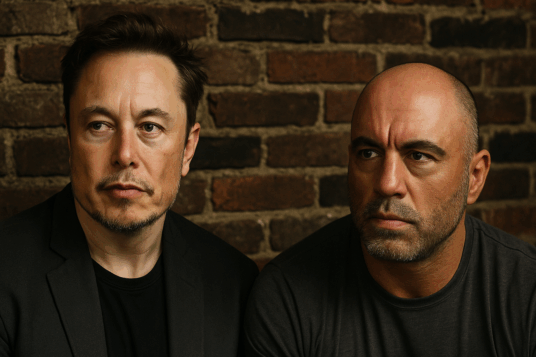There’s a strange thing happening in the modern West: some of its most secular voices are beginning to praise Christianity. Not believe it, or live the gospel of Jesus—but publicly admire Jesus and the values the Christian faith has brought. It’s what we might call cultural Christianity—a nod to the beauty, structure, and usefulness of Christianity, without any allegiance to Christ Himself.
This isn’t surprising. As modern society crumbles under its own contradictions, many are reaching backward—searching for something solid. And what they keep finding, whether they like it or not, is the residue of Christian civilization.
What Is Cultural Christianity?
Cultural Christianity is not a new religion. It’s a hollowed-out version of Christianity—stripped of the cross, the resurrection, repentance, and the Lordship of Christ. It’s Christianity as an aesthetic, a set of values, or a social order. It appeals to people who appreciate what Christianity has done for the world but don’t want to submit to its demands.
You’ll hear phrases like:
- “I like what Jesus taught.”
- “We need Judeo-Christian values.”
- “Christianity built the West.”
- “Religion is useful, even if it’s not true.”
These statements reveal a position that is not hostile to Christianity—just indifferent to its spiritual claims. Christ is a reference point, not a Redeemer.
Public Figures and Their Christian Affections
Let’s consider some prominent voices often identified with this trend:
Elon Musk
Musk has said he “agrees with the principles that Jesus advocated.” In interviews, he affirms Jesus’ teachings on forgiveness, charity, and humility. He also recognizes Christianity’s civilizational importance—especially its emphasis on human dignity and free thought. Musk has even gone so far as to say he’d be “saved,” if Jesus is saving people, and that he “respects and agrees with” Jesus’ teachings.
But when pressed on faith, Musk remains vague or agnostic. He treats religion like an operating system: useful when functional, replaceable when outdated. Jesus is appreciated as a moral philosopher, not embraced as a Savior.
Richard Dawkins
Dawkins’s shift is perhaps the most surprising. Long considered the high priest of New Atheism, Dawkins now calls himself a “cultural Christian.” He admits that the moral, scientific, and civic framework of the modern West owes much to its Christian past. He prefers Christian civilization to Islamic or secular-progressive alternatives.
Yet Dawkins still rejects supernatural claims, miracles, the resurrection, and personal faith. His Christianity is civic, not spiritual. It’s the skeleton of a worldview that once had flesh.
Jordan Peterson
Peterson is perhaps the most complex of the group. He treats the Bible as a psychological map for meaning and moral structure. He sees Christianity as the narrative backbone of Western civilization and considers Christ a model of individual sacrifice and responsibility.
Peterson is deeply sympathetic to the gospel narrative, and at times even trembles at the thought of its truth. But he has stopped short of confessing Christ. His admiration is intellectual, literary, and emotional—but not yet spiritual.
Joe Rogan
Rogan often highlights the practical wisdom in Jesus’ teachings. He acknowledges that religion offers moral guidance, community, and inner peace that secularism lacks. He interviews Christians frequently and listens with respect.
But like the others, he keeps Christ at arm’s length. He accepts Christian ethics selectively, but has no interest in surrendering to Christ’s claims over his life.
The Gospel Is Not a Set of Values
Here lies the great danger of cultural Christianity: it feels close enough to the real thing to be mistaken for saving faith. It affirms good morals, loves the idea of Jesus, and talks about Christian heritage. But it refuses to bow the knee.
Jesus isn’t calling for admiration. He is calling for repentance. The gospel isn’t an agreement with Christian ideals—it is a surrender to a crucified and risen King. It is not enough to say “Jesus was right.” The demons believe that—and shudder (James 2:19).
Christ didn’t come just to inspire us. He came to save us. He died for our sin and rose to reign. Until that truth is acknowledged, all admiration is empty.
A Word to the Church
It’s tempting to celebrate when influential people say positive things about Jesus. But we must not confuse influence with conversion. We must not grow timid in preaching the cross just because someone nods politely at our faith.
The real Jesus isn’t looking for fans. He is calling disciples. The church must resist the urge to flatter cultural Christianity. Instead, we must engage it—respectfully, clearly, and persistently—with the gospel.
Final Thought
Cultural Christianity may be better than open hostility, but it is not salvation. It is a spiritual halfway house: comfortable, familiar, and ultimately empty. We must pray for these men and millions like them—not that they stay near the truth, but that they finally cross the line into it.
Because being close to Jesus isn’t the same as being in Him.
“Unless you believe that I am He, you will die in your sins.” (John 8:24)

One response to “The New Heretics: The Gospel According to Musk and Rogan”
[…] 2 in the series: “Cultural Christianity: Close, But Not Converted”. Read Post 1 here)When we think of cultural Christians, we often picture outsiders—those who admire […]